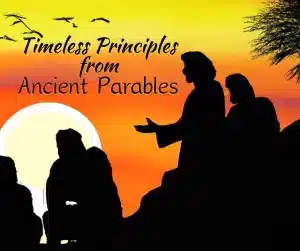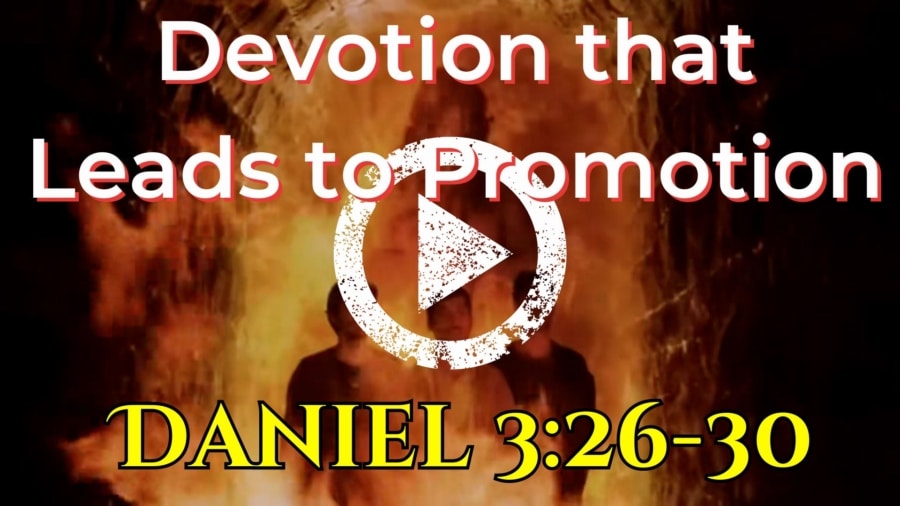- These are Written
- Believe
- Should Not Perish
- 3:16
- Never, Never
- Life, Love, Light
- Condemned by Choice
- This and That
- Seven Expressions of Love from the Cross
- Why?
- I know, I know!
- What?
- UGH!
- Expedient
- Gain Grace?
- The Gift
- The Hands of God
- Immortality
- COME UP HERE
- Not by Works of Righteousness We have Done
- Jesus’ Perspective on His own Death
- I AM
Revelation 4:1 begins, “After these things.” This is exactly the phrase that is used in Revelation 4:19, giving the outline. It refers to a specific time, namely, after the church age. So, after the church age, John says, “I looked and behold a door standing open in heaven.” This reminds us of three very important things. First, Jesus Christ is the door and identifies Himself as such (John 10:7). What kind of a door is He? He’s an open door to heaven. Second, Jesus Christ opened the door. We see that in Luke 23:45, where He cries out in the agony of separation from the Father and says, “the veil in the temple was rent from top to bottom,” signifying that the way into God’s presence is now open. The veil symbolized the fact that there was a barrier between God and man which was removed on the cross. Finally, the “door” reminds us that He has opened to us a door for evangelism. Remember, with the Church of Philadelphia, He said that He “would open for them a door that no one could close (Revelation 3:8).” You also see the apostle Paul in 1st Corinthians 6:9 asking the Corinthians to pray for him because he said, “a great door for effective service has been opened to me and there are many, many adversaries.” So, the open door is significant because it all centers around the finished work and victory of Jesus Christ on the cross.
Revelation 4:1 says, “I saw a door open in heaven.” I should point out to you that the verb here is perfect. The door opened in the perfect hands, and means it opened in the past, with the result that it remains opened in the present. Jesus Christ opened the door in the past through the work of the cross, and it remains open to the present time. When John saw the door standing open in heaven, he “heard the first voice that he had heard.” The first voice that he heard was the voice of the Lord Jesus Christ. So, he’s hearing the voice of our Lord speaking with him like the sound of a trumpet. This voice, like the sound of a trumpet, gives him a command, and the command is “COME UP HERE.” Now, it’s significant that at the end of the section dealing with church history, John should hear the command, “Come up here,” and he hears it in a voice of a trumpet. You’ll remember in 1st Thessalonians 4:13-18, we are told that “The Lord Himself will descend from heaven with a shout, with a voice of the archangel and the trumpet of God, the dead in Christ will rise first, and then we are alive and remain will be caught up together in the clouds, and so shall we ever be with the Lord.” Also, in 1st Corinthians 15:51-58, the Apostle Paul talks about how, “we shall all be changed in a moment. In the twinkling of an eye at the last trumpet.” That trumpet, I believe, is the very voice that John hears in Revelation 4:1. And what that voice says, what is said there. When the rapture of the church takes place, believers are going to hear the voice of the Lord Jesus Christ in the same manner. You might just read through John Chapter 5, because in His explanation of the resurrection, the Lord Jesus Christ said, “the hour is coming, and now is when those who are in the grave will hear his voice and they shall arise.” So, I believe that the voice that brings the dead in Christ from the ground and catches up those who are living is the very voice that we hear right here. What this portrays in verse one is the rapture of the church. Let me just point out again that while the term “church” and “churches” has been used 19 times in the Revelation Chapters one to three. You will not see the word “church” occur again until Revelation 22:16. Not until God’s plan is finished. Not until we’re in the eternal state is the church mentioned again. What we find in the interim is symbolic language in Revelation Chapters 4 and 5 in heaven. In Revelation Chapter 6 through 19, the section dealing with the tribulation period, the emphasis is all on Israel. Why? Because that’s annual 70th week. We looked at that last time. That’s the time when God is finishing His work in the nation of Israel.
“After these things” is used twice in Revelation 4:1. This is emphasis and very Hebrew. It’s a very Hebrew thing to speak something twice for the purpose of emphasis and to display perfection.
Believers are going to hear the voice of the Lord Jesus Christ. A voice that brings the dead in Christ from the ground and catches up those who are living. This is the very voice that we will hear, “COME UP HERE.”
Gene Cunningham - April 8, 2000
Simplicity in Christ #12

God's word is a sword. What is its target? (Heb 4:12). Man shall not live by bread alone (Mat 4:1-4). The word is a sword to be used in prayer (Eph 6:17-18). Sermon on the Mount was a message on the life of a disciple (Mat 6:7-13). There's no fellowship apart from participation.Committing sin quenches the Spirit (Eph 4:30). Lack of participation (omission) grieves the Spirit (1Th 5:19). How is God's name exalted? God's name is "hallowed" by the coming of His Kingdom (Eze 36:23). When is His will done? The mark of His Kingdom is when His will is done in the life of His people (Rom 14:17). What is the name being hallowed? Jesus. "What is His name?" was an Old Testament mystery (Pro 30:4, John 17:6, Phi 2:10).
Should we pray for the kingdom? (Joh 18:36-37). The Kingdom of Glory is prophetic, universal, future. It's also a Kingdom of Grace which is personal, practical, and present. It works out in human thoughts, actions and decisions. Praying "Thy Kingdom come" means let it be in me. He is creator, redeemer, mediator, but also what God desires man to become. To do that, or will has to be subordinated to His. The ills of the earth are a result of human wills running the show. The Jews longed for the King of Glory, but not the Kingdom of Grace. We want Him to control others, but surrender to His will is the only path to righteousness, joy, and peace in the Holy Spirit. For the Church Age believer, the Kingdom of Grace prepares the way for the Kingdom of Glory which includes the marraige of the church to Jesus Christ, united in a spiritual union forever. What we see as a discipline in Jesus' life is a discipline in prayer. Jesus always stresses the importance of God's word (Heb 4:12). When he exhorts the disciples he emphasizes prayer (Eph 6:17-18).
Prayer converts God's Word into His Work. "If you ask anything in My name, I will do it." (Joh 14:9-14). How can God's Word be converted to work written into our life? (Joh 10:25-38, Joh 8:31-32). We are a message to others, whether true or false (2Co 3:2-3).
You're writing a gospel, a chapter each day,
by the deeds that you do, and the words that you say.
Men read what you write, whether faithless or true.
So, what is the gospel according to you?
Jesus prayed so that the perfect Man could be a living example of the word of God in His everyday life (Mar 1:35, Luk 11:1). How much greater our need to be in prayer. What's the missing link between "greater works than these he will do" (Joh 14:12) and "I will do it" (Joh 14:14)? "... ask in my name" (Joh 14:13-14).
Prayer transforms fellowship into fruit. "He who abides in Me, and I in him, bears much fruit; for without Me you can do nothing" (Joh 15:5-6). God has designed partnership into His plan. Without fellowship or fruit, the world harshly treats a believer. "...they gather them and throw them into the fire, and they are burned" (Joh 15:6, Eze 16:40-41, Eze 17:9-10, Eze 19:12-14). God changes our desires, and grant them when we pray (Joh 15:7-8, Psa 37:4). The request must glorify Him. "You did not choose Me, but I chose you and appointed you that you should go and bear fruit, and that your fruit should remain, that whatever you ask the Father in My name He may give you." (Joh 15:16).
Prayer is the "divine alchemy" which turns sorrow into joy. "...Ask, and you will receive, that your joy may be full" (Joh 16:20-28). We need to seek Him until we see Him (Joh 14:21-23, Mat 5:8-9). We will see a spiritual reality when we ask (Heb 11:12, Heb 11:27). The promise illustrated by the picture when met with the prerequisite ends up in a privilege (Joh 16:23). We go to the Father in the name of the Son, by the power of the Spirit. Jesus gave the disciples one last prayer example (Joh 17:1-26).
Scripture References: Ephesians 6:17-18, Matthew 5:8-9, John 14:12, Ephesians 4:30, Ezekiel 17:9-10, Hebrews 4:12, John 14:21-23, Luke 11:1, Matthew 6:7-13, Ezekiel 16:40-41, John 18:36-37, John 16:20-28, Mark 1:35, John 17:1-26, Ephesians 6:17-18, John 15:6, Philippians 2:10, John 15:16, John 8:31-32, John 16:23, Matthew 4:1-4, John 15:5-6, John 17:6, Psalms 37:4, John 10:25-38, Hebrews 11:27, Hebrews 4:12, John 14:13-14, Romans 14:17, John 15:7-8, John 14:9-14, Hebrews 11:12, John 14:14, Ezekiel 36:23, Ezekiel 19:12-14
From Series: "2018 AYC Ladies Classes"
Nan Cunningham spoke to the ladies at the 2018 AYC Camp.








